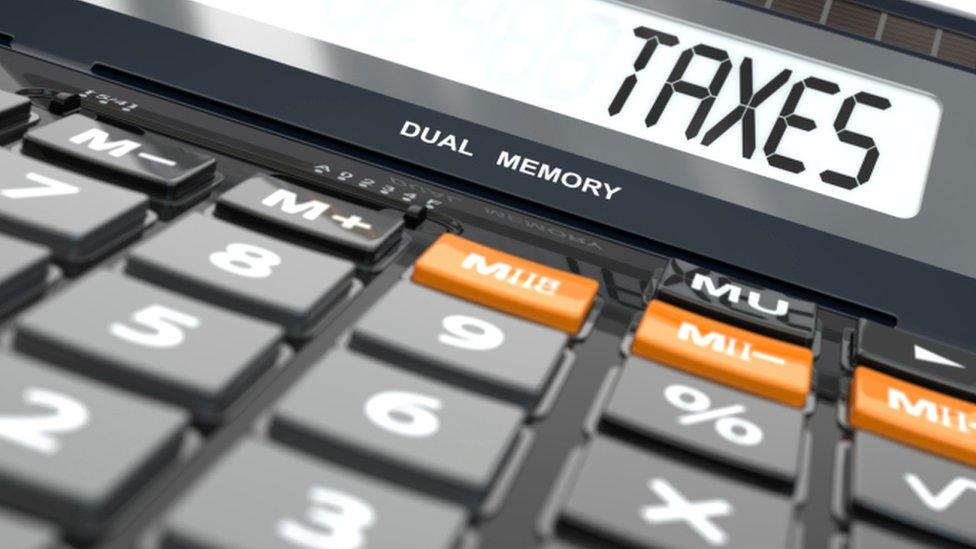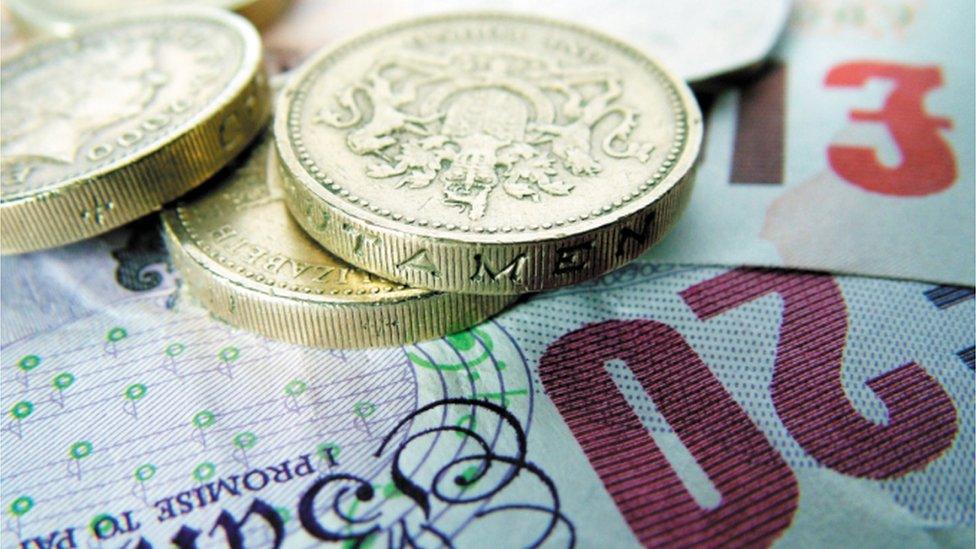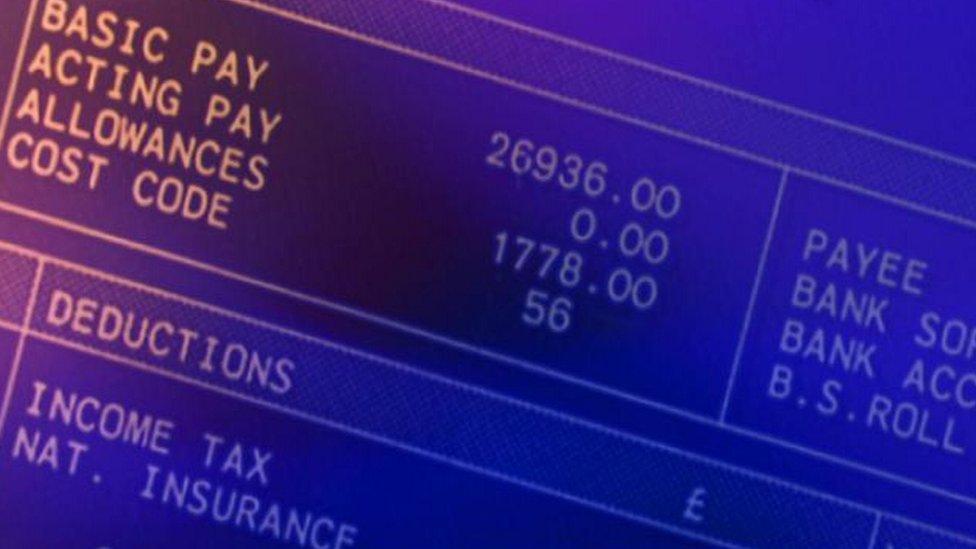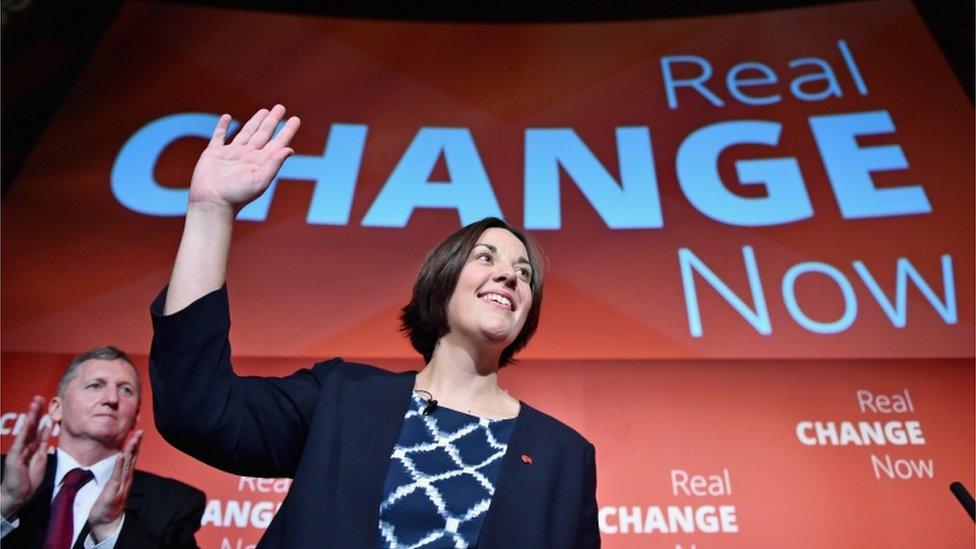The Taxman Cometh
- Published

So there we all were, sitting in the neat, magnificent cinema in Glasgow's Royal Hospital for Children.
It is a truly uplifting place. The walls festooned with children's movie treats. A large space at the front where hospital beds can be wheeled directly into place, to allow every youthful patient to see the film.
The assembled members of the wicked media wondered what might be on offer once the first minister arrived. Braveheart, perhaps? Or, more contemporaneously, Brave?
Enter Nicola Sturgeon, accompanied by sundry eager advisers. Distressingly, not one of them was bearing popcorn. Plenty of weighty tomes. Not a nacho in sight.
Instead of a buoyant story of youthful triumph, the fare on offer was The Taxman Cometh. Ms Sturgeon intended to talk revenue.
Her demeanour was serious. As she explained, this isn't a game. It isn't a gesture. Tax policies taken by Scottish ministers translate directly into tax taken from hard-working families - the sort, she said, she encountered every week. Determined - but struggling.

Yes, she said, she had looked at the possibility of increasing the basic rate by 1% - as Labour and the Liberal Democrats propose. But not all that hard, it appeared. Ms Sturgeon said she was fundamentally against loading tax onto low-earners, despite the promises by her rivals that there will be rebates.
Yes, she had looked very seriously into the prospect of increasing the top rate, for those earning more than £150,000, from 45p to 50p, as Labour propose. But, having modelled for behavioural change, she had ruled it out.
'Foolish exercise'
If only a relatively small percentage of top earners shifted their tax base to England, then Scotland would lose out. A higher rate would generate lower revenue. As one well-placed insider said: "That would be a foolish exercise in foot-shooting."
So the offer on tax is to thwart the chancellor's proposed tax cut for higher earners which is achieved by raising the threshold for the 40p rate from £42,000 to £45,000.
Instead of that, the threshold in Scotland will only rise by CPI inflation - as I forecast a wee while back. (In fact, the entire package will have come as no surprise to regular readers of this site.)
Ms Sturgeon and her deputy John Swinney said their plan meant nobody in Scotland would pay more than they presently pay. Some would pay less. But some would pay more than folk in the rest of the UK.

That, they said, would generate productive revenue for public services in Scotland - which they multi-counted to reach a figure of £1bn over the lifetime of the next parliament.
Looking ahead, the first minister also envisaged an enhanced personal allowance of £12,750 by 2021-22 - with the prospect of a zero rate band to achieve that, if necessary.
Reaction from opponents varied.
The Conservatives said it was wrong to levy more from folk in Scotland, even in the limited form proposed by current Ministers. Labour, the Lib Dems and the Greens attacked the SNP proposals as "timid".
Political gestures
SNP ministers would probably prefer the description cautious. They would not, I think, categorise them as bold or radical. Political gestures, they argued, tended to backfire.
One factor exercising ministerial - and, no doubt, official - minds is the rawness of the new tax powers. They want them to settle down first. They want to ensure, frankly, that they work. After that, they forecast, Scotland's tax package might diverge more obviously from that of rUK.
Also we had Labour's thoughts on council tax.
They intend to replace it with a property tax, involving a revaluation. Houses worth up to £180k would pay one rate. The value of properties above that would attract a higher rate. Total levy a maximum of £3k per property - with a 3% cap annually thereafter. Rebates for the low paid.
Opposition reaction? Some question whether it is much more than a recalibrated council tax.
Labour dispute that sharply. Others challenge the lack of local council discretion. Labour counter that by pointing out that they would also permit councils to levy a tourist tax, based on hotel bed occupancy, plus a charge on vacant, derelict land.
It's your tax. Your council tax. And, ultimately, your choice.
- Published19 March 2016
